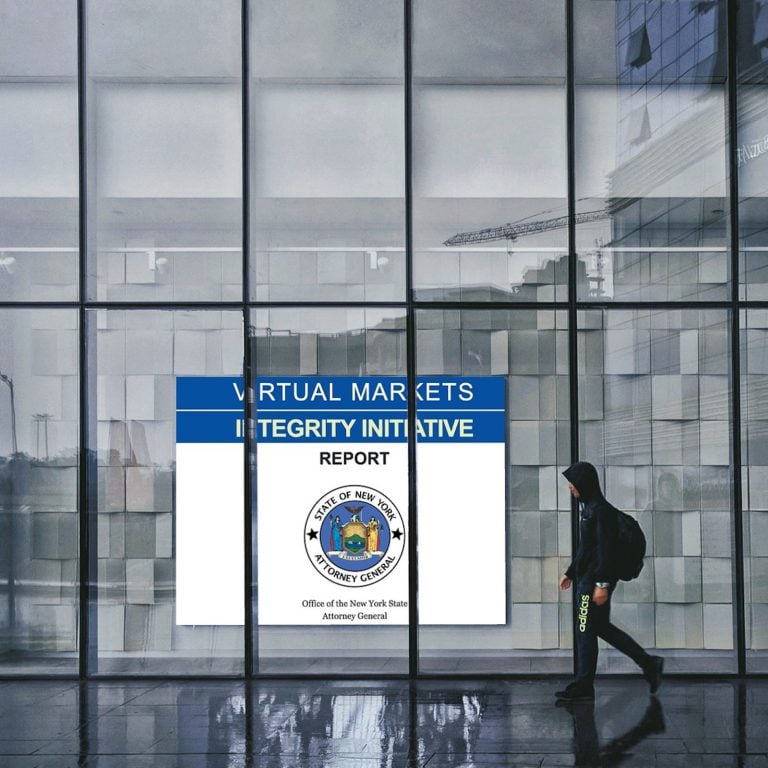2018-12-9 03:00 |
There is a distinct division around blockchain-related regulation in the United States, especially when it comes to state-level regulation. The spectrum ranges from conservative New York to progressive Ohio.
In the U.S. today, two main positions from a regulatory standpoint exist. New York has taken a stricter, more controversial stance towards blockchain projects while states like Ohio have adopted much more encouraging policy.
Conservative New YorkNew York City is home to Wall Street, the financial capital of the world. It is not surprising that Bitcoin and cryptocurrencies, technologies with the goal of reversing the need for “financial institutions serving as trusted third parties,” have drawn distaste from some of the leadership on Wall Street.
Jamie Dimon, the current CEO and Chairman at JPMorgan Chase, has called Bitcoin “a fraud.” Another Wall Street powerhouse, the Bank of America, has accepted that crypto is a threat to their business, as stated in an annual report to the SEC:
“In addition, the widespread adoption of new technologies—including internet services, cryptocurrencies, and payment systems—could require substantial expenditures to modify or adapt our existing products and services.”
This skepticism and worry have caught the eye of regulators. To that end, New York implemented the BitLicense, a regulatory framework that aims to provide consumer protection for blockchain technology and cryptocurrencies. Erik Voorhees, the CEO of cryptocurrency exchange ShapeShift, had a harsh reaction to Dimon’s statements about Bitcoin and criticized the ‘know your customer’ (KYC) aspects of the BitLicense calling it an “aggregated surveillance list”.
My memory is failing, was it Bitcoin or was it JP Morgan that was bailed out by the government? https://t.co/DHqFzr5UJN
— Erik Voorhees (@ErikVoorhees) September 12, 2017
He is not alone; Kraken, a cryptocurrency exchange based in San Francisco, exited New York over the BitLicense.
In a blog post from 2015, Kraken likened the BitLicense to a “a creature so foul, so cruel that not even Kraken possesses the courage or strength to face its nasty, big, pointy teeth”.The primary source of discontent with the BitLicense stems from its hope to provide “consumer protection” via a system that would enforce know your customer rules on cryptocurrency companies with customers in New York. This would include collecting customers’ personal information. To some, this runs counter to what blockchain stands for: individual control of data and assets, and freedom from institutions controlling that process.
Secondly, the process of acquiring a BitLicense has been less than popular with the blockchain community. As of Nov. 1st, there have only been twelve companies that have been granted licenses. This creates a barrier of entry for any new blockchain projects in New York.
Progressive OhioCleveland, Ohio’s second largest city, is less than two hours away from New York’s southwest border and has been taking a very opposite approach to the blockchain.
Through an initiative led by state treasurer Josh Mandel, Ohio became the first state to accept Bitcoin for taxes. This is important in multiple ways; Georgia, and Illinois have pending bills to accept Bitcoin for taxes in the state legislature, while Arizona successfully passed such a bill through the Arizona Senate and is waiting for confirmation from the House of Representatives. These kind of initiatives could be the first step towards greater support for pro-blockchain legislation.
Cleveland has the Blockland initiative with the goal of “establishing and leading a blockchain ecosystem with support from private, public, and philanthropic individuals and organizations” with support from the state’s Governor, John Kasich. State Senator Matt Dolan has sponsored a bill (SB300) which eventually led to Ohio legally recognizing data on blockchains. In the state’s capital, Columbus, a Franklin County auditor, has planned to use blockchain technology to transfer property deeds.
Great explanation of blockchain technology and the benefits that it can bring to Ohio.
https://t.co/DjEHzuHny9
— John Kasich (@JohnKasich) November 12, 2018
Ohio is taking a very business-friendly stance that has been experimented with in other states across America. On the other hand, New York is not alone in using strict regulation to control the blockchain industry. Washington state, for example, has implemented cryptocurrency regulation that could impede blockchain startups in the state.
Although these two approaches run counter to each other, they also present the other 48 states with precedent on how to manage crypto and blockchain technology. It is clear which system blockchain projects like better, but at the same time pro-blockchain legislation may put investors and consumers at risk. Whether other states will follow New York or Ohio’s lead is still to be seen.
The post New York vs. Ohio, the Tale of Two Regulatory Frameworks appeared first on CryptoSlate.
Similar to Notcoin - TapSwap on Solana Airdrops In 2024
Time New Bank (TNB) на Currencies.ru
|
|















